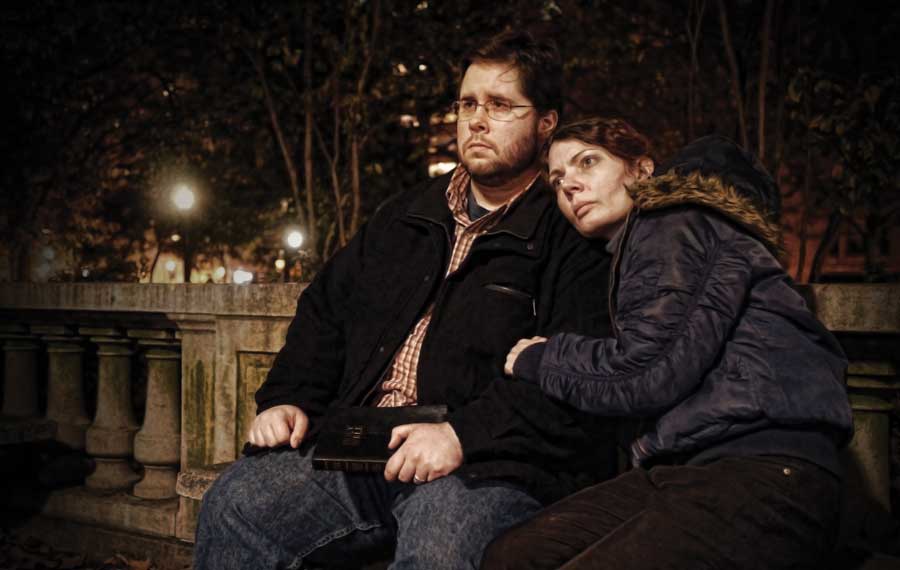Director Cara Blouin considers her political views unequivocally liberal. But when she saw a production of Christopher Durang’s Why Torture Is Wrong, and the People Who Love Them, she was struck by the play’s apparent assumption that everyone in the audience was in on the joke and shared—indeed, reveled in—a monolithically liberal position. To judge by the audience response, that was the case. That got her thinking.
“In the theatre we always talk about doing what’s radical,” Blouin says, “and it seemed to me that producing conservative plays would be the most radical thing we could do.”
So she launched the Philadelphia-based 2012 Republican Theater Festival (RTF). It was a bumpy road from the get-go: Roughly 60 percent of the plays submitted were not conservative at all, suggesting just how desperate playwrights are to see their work mounted anywhere, and about 10 percent of the submitted work articulated ideas about race and sexual orientation that Blouin simply felt uncomfortable staging.
The 10 short plays she ended up producing mostly featured protagonists who served as mouthpieces for the playwrights, and much of the material consisted of over-the-top parodies of liberal values, she concedes. The Occupy Wall Street movement was at its height, and many pieces mocked participants as trust fund babies with nothing better to do.
“I suppose I was expecting fresh ideologies told from a personal perspective, and I didn’t get them,” Blouin says. “And the liberal audience was not uncomfortable expressing its distaste audibly. I wanted the plays to foster dialogue, but in fact they provided a platform for further division. It was a misguided effort on my part, and I wouldn’t do it again.”
She even claims that being associated with a “Republican” theatre festival hurt her chances when she applied for a theatre arts grad program. She insisted that the festival was only an experiment and did not express her own views, but to no avail. “It’s kind of scary that I was rejected from grad school because of it,” she says. “It almost proves the conservative argument.”
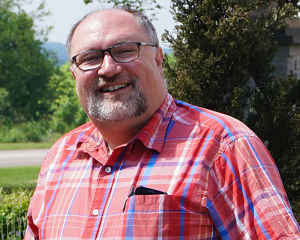
Two other similarly themed festivals have emerged to further that argument. Last January, Columbus, Ohio, witnessed a Conservative Theatre Festival, and another Republican Theatre Festival—not organized by Blouin—is slated for Atlanta in the summer of 2018. Their respective producers are convinced they’ve struck an unacknowledged chord within the theatre community—and an untapped audience for “conservative theatre,” however that term is defined.
Robert Cooperman, playwright and professor of English and theatre at Ohio University, had felt for a long time that the conservative voice was lacking onstage when he launched the Conservative Theatre Festival. A Trump supporter on every front—he considers himself both a fiscal and social conservative—Cooperman says he felt further emboldened by Trump’s presence in the White House.
“I love the fact that he fights back instead of sitting on his hands and turning the other cheek, which conservatives have been doing for a long time,” claims Cooperman. “President Trump brought me out of my shell. But also, let’s face it, I saw a niche here. My plan is to do a festival with original plays every year and produce conservative plays throughout the year that may or may not be original.”
In July he produced David Mamet’s The Anarchist, and brought in a Mamet scholar to speak to the audience, who “whetted the audience’s appetite for the play and made Mamet’s conservative orthodoxy in the play much more embraceable.”
Cooperman’s first Conservative Theatre Festival included a play about the experience of a teacher fired when he mentioned creationism as an addendum to his lesson on evolution. Another piece viewed a transgender couple and their daughter with a satirically jaundiced eye.
He received approximately 80 submissions and produced nearly half (38). Most were excessively broad and heavy-handed, he admits, adding that such lack of subtlety isn’t unusual for new playwrights, especially those who have felt silenced because of their political views.
“The reason we are shouted down is that we are not heard for being who we are,” Cooperman claims. “Instead, we are being defined by the Left. I’d like to get to the point where someone could say, ‘I don’t want to bake a cake for a same-sex wedding,’ and it would not be assumed that that position is based on hate but rather on religious conviction.” Brandishing the logo “Disagreement Doesn’t Equal Hate,” Cooperman says he looks forward to “the day when conservative views have a place at the theatre table alongside LGBTQ, Latino, women’s, and whoever else wants to be there.”
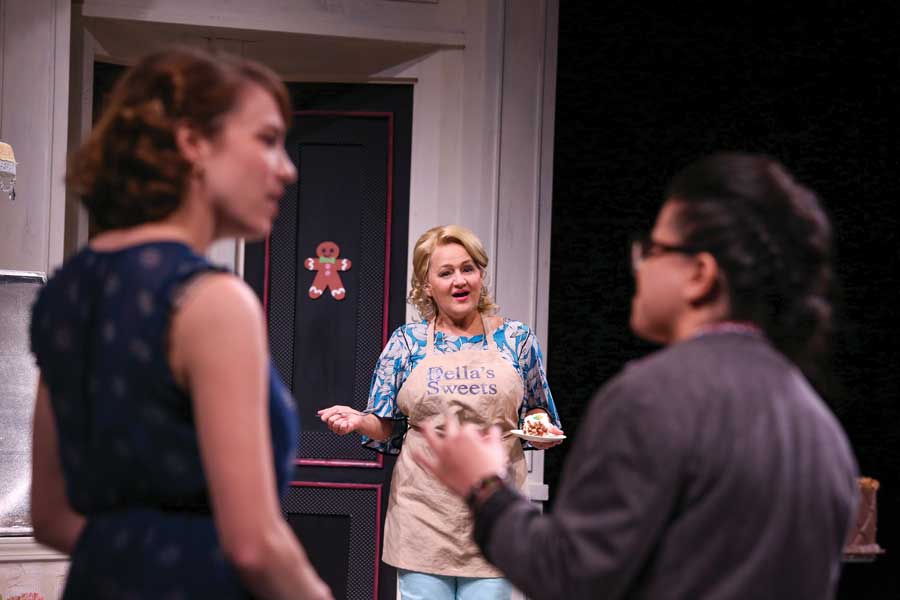
If Cooperman is looking for a sympathetic portrayal of a religiously motivated baker challenged by a same-sex marriage order, he might consider producing playwright Bekah Brunstetter’s The Cake, which played to acclaim at Echo Theater Company in Los Angeles over the summer, ran in September at PlayMakers Rep in Chapel Hill, N.C., and will play at La Jolla Playhouse Feb. 6-Mar. 4, 2018. Though she has spent years living among liberal theatre artists in New York and now L.A., and fully embraces their liberal politics, on some deep emotional level she says she still connects to her Baptist roots in North Carolina. Feeling caught in the middle, she has learned to accept that she lives in a contradictory place, and suspects there are many other theatre artists and audience members who feel as she does.
“I’m all for gay marriage and I don’t agree with bakers who won’t create wedding cakes for gay couples, but I also have empathy for the bakers,” she says. “Evangelical Christians have thanked me. I feel responsibility for them, today more so than ever. I don’t expect anyone in the audience to make a 180-degree turn in viewpoint after seeing my play, but I’d like to think my play might help audiences appreciate another person’s feelings and experience the humanity in someone who doesn’t necessarily have their views.”
Colt Chambers, the actor, director, and producer behind Atlanta’s planned Republican Theatre Festival, is just 21. A Trump supporter and fiscal conservative who defines himself as socially liberal, he leads the Young Republicans in his community. His goal: to be chairman of the NEA.
“Is that a contradiction? Yes and no,” he asks and answers rhetorically. “Arts are a huge part of generating revenue in a community. Think about the neighborhood restaurants and bars, for example. I’m not a typical conservative.”
He has no problem with foul language or nudity onstage, loved Hamilton, and is fine with unilateral colorblind casting. Still, he’s experienced plenty of backlash from friends “who’ve asked me not to support the arts because they believe I represent everything they don’t believe in,” he says.
Plays in which conservative characters are dramatized without being vilified is all he’s looking for, Chambers says. “We’re not trying to change how people vote.”
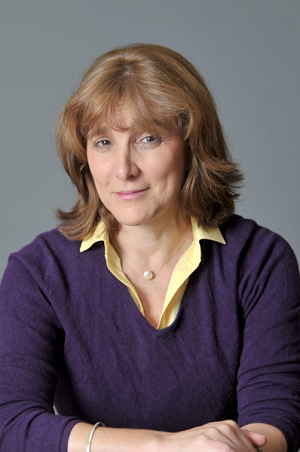
Precisely how many theatre artists are conservative is hard to gauge, though estimates run from five to 10 percent, possibly higher if libertarians are included. Indeed, even defining what “conservative” stands for isn’t simple.
Consider playwright C.J. Ehrlich, contributor to the RTF and CTF, who says her views straddle the Left and Right. For instance, she agrees that coal production is dying and prefers alternative energy sources in part because they provide a superior way to create jobs; she’s in favor of saving endangered species and national parks as opposed to strip mining them. She views Trump as an “impulsive, narcissistic, certifiable profiteer.” At the same time, she considers the Affordable Care Act a burden on small business and is ambivalent about government entitlements; she favors community/institutional giving over one-on-one charity. One of her plays, Spare Some Change, tackles the topic.
“Normally I avoid didactic theatre,” she says. “My genre is comedy and black comedy. I challenged myself to write for the conservative theatre festivals to see if I could comically dramatize a dry subject and explore it from the target audience’s point of view.”
She was initially afraid to put her real name on her scripts. “There’s a Facebook playwrights group, and after the festival a few people got really nasty about the CTF playwrights,” she says. “There seems to be a growing ‘hard Lefty’ tendency to label and judge based on a laundry list of ‘what’s Right’ to denounce. Most writers that I associate with, however, are open-minded.”
Several playwrights I interviewed insist their plays don’t get read by agents or even artistic directors of the smallest theatres if, for example, the readers detect that the material might take an anti-abortion stand. Basil Considine’s play The Abortion Bomb is the perfect case in point. Considine, a Minnesota-based playwright, classical music and drama critic, musicologist, and artistic director of the Really Spicy Opera, notes that the play approaches the theme from the perspective of the unwed girl’s parents, who are Catholic and vehemently opposed to her abortion. He shares that view, as a practicing Catholic himself—he almost became a priest. But he says he favors same-sex marriage and the separation of church and state.
Though he is part Chinese, he feels no special impulse to create opportunities for artists of color in his opera company, though he has forged a three-year initiative designed for women artists, where each composer/librettist team must have at least one female member; 60 percent of the characters onstage must be women (and not just as prostitutes or nuns), and female leads cannot be dead at the end of the opera.
On the list of things he objects to—which includes theatre websites that have become hubs of social activism, post-play talkbacks that presuppose agreed-upon political viewpoints—Considine says he’s most deeply troubled by a recent crop of plays about returning soldiers from Iraq and Afghanistan that purport to be broad-minded, liberal, and compassionate, but which invariably portray veterans as “violent, damaged, and struggling with demons. It’s patronizing to paint them with that brush, all in the guise of liberalism. The anti-war culture is very disrespectful, and those views are reflected in the theatre.”
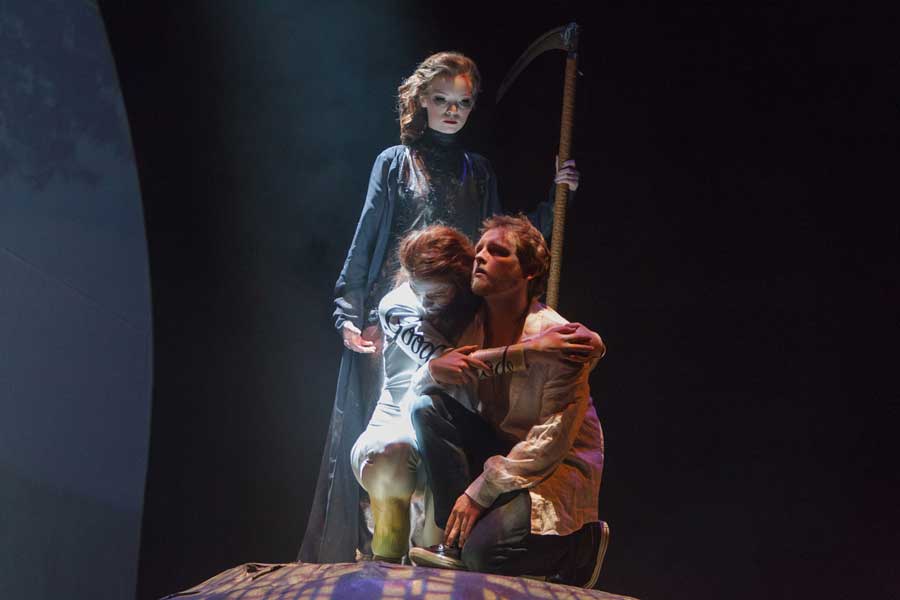
While religion should not be conflated with conservatism, there may be a thin line, admits Linda Nell Cooper, who heads the theatre department at Liberty University, a Christian college in Lynchburg, Va., founded by evangelical pastor Jerry Falwell. Many Liberty pupils were home-schooled and hail from politically conservative families whose politics they reflect, if not ape.
Though politics are rarely discussed in school, Cooper says, religious values are integral in daily life at the college. When emotions run high in acting classes, for example, Cooper says, Liberty students may support a distraught fellow actor by forming a circle and praying for them.
“Our mission is to train artists who will bring excellence to whatever they do,” she says. “We do not tell them what to do or not do in their careers. We’re hopeful that if they live a Christ-honoring life, they will have their own personal convictions and boundaries.”
Dubbing it “good tribalism,” Cooper says that life-long affiliation and networking opportunities are forged among the alum. “Students of the school will seek each other out, knowing they will always have someone to pray for them and/or ask for charity on their behalf if it’s needed.”
A sense of community is precisely what’s missing among the conservative theatre artists I interviewed, who for the most part feel sorely isolated in the theatre world. Renee Carlson, an actor based in Brockton, Mass., says that as a conservative she feels more scrutinized than ever among her fellow actors, who appear to wait for her to voice some unacceptable political view so they can criticize her for it.
But she says she’s particularly disturbed by their lack of sympathy for her husband, who served in Iraq and now suffers from PTSD.
“They have no understanding of sacrifice and think all soldiers are stupid,” she says. “They have little patience with me for staying with my husband and feel free to voice it.”
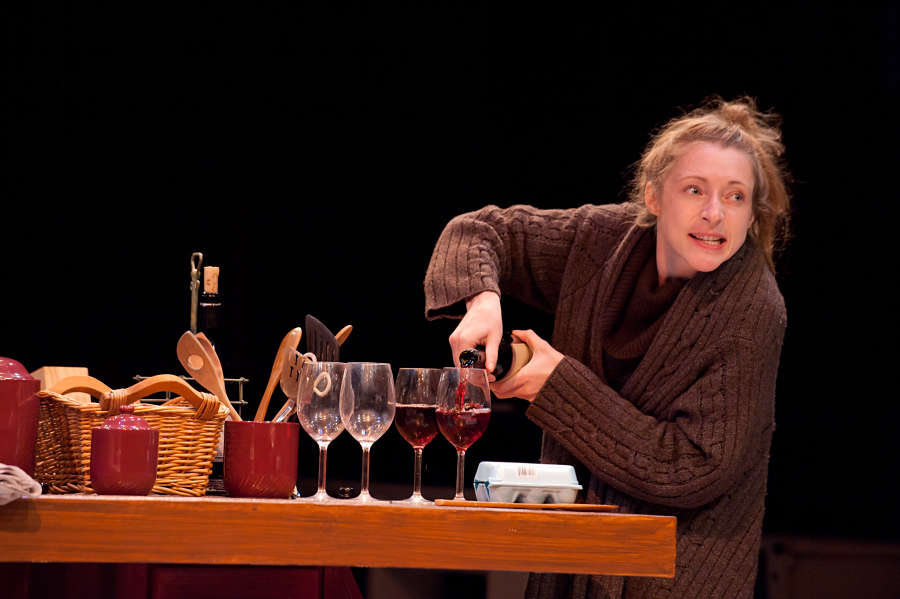
It’s not as if plays with openly conservative points of view are never produced by mainstream U.S. theatres; David Mamet’s Race recouped its investment on Broadway in 2010, and was among the most-produced plays in the U.S. in the following season.
And plays with heterodox points of view do make their way to U.S. stages. At Burning Coal Theatre Company in Raleigh, N.C., where thought-provoking political plays are often on the menu, Richard Bean’s The Heretic opened its 2013-14 season. A play by the author of One Man, Two Guvnors, The Heretic follows a scientist at a small British university whose research does not bear out the consensus around man-made global warming. She’s told if she publishes her results she’ll lose her job.
“I believe in climate change and feel that it’s our greatest challenge, especially if we don’t address it,” stresses Burning Coal’s artistic director Jerome Davis. “The play isn’t saying climate change does not exist, and it’s not anti-science. It’s just the opposite. It’s saying if you believe in science, you believe the professor’s paper has to be published.” He notes that while the play provoked no controversy in North Carolina, it received mixed reviews in its original London run and in a later Melbourne engagement.
And last spring, Off-Broadway’s 59E59 produced Bruce Graham’s White Guy on the Bus, in which Robert Cuccioli played Ray, a rich liberal whose wife is killed by an African-American. As retribution, he offers to pay Shatique, an impoverished African-American woman whose brother is serving a life sentence in the same prison that houses his wife’s murderer, to convince her brother to kill the mugger. She accepts the offer.
The play violates liberal orthodoxy on two fronts, giving the audience permission to identify with Ray (made all the easier by Cuccioli’s simpatico manner) and presenting a black woman who does not take the moral high ground.
“Some audiences were uncomfortable with Shatique for accepting the money, but there were others who felt she should have held out for more,” says Graham. “With the exception of one theatre in Philadelphia, we had no problem getting produced. And I’m not in vogue. I’m a 60-year-old white heterosexual man. On social, environmental, and women’s issues I’m way Left. On the subject of crime I’m right-wing.”
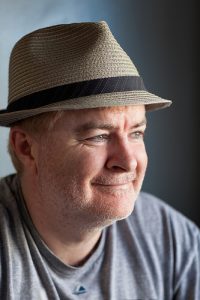
Phelim McAleer doesn’t like labels. The Irish-born author and maker of such Left-debunking documentaries as Fracknation and Mine Your Own Business thinks of himself as “a journalist whose goal is to tell the truth, and if that’s conservative I embrace it.”
To that end, his play Ferguson recreates verbatim the grand jury testimony surrounding the shooting of Michael Brown by police officer Darren Wilson—a process that ended in the decision not to indict Wilson and called into question the famous “hands up, don’t shoot” rallying cry. In four packed readings of the play in Los Angeles in 2015, McAleer says “people were leaning forward to hear every word.” Other were less positive: “At least nine actors refused to participate. They walked out, and one member of the audience physically attacked me. People don’t like their beliefs shattered by facts.”
The piece, largely underwritten through crowd-funding, will receive its New York City debut presented by Theatre Verite Collective at 30th St. Theatre, Oct. 19-Nov 5.
To what degree the plays cited represent a trend is up for grabs. Still, most of those I interviewed say they’re cautiously optimistic about the future of theatre with a conservative point of view.
Cooperman, for example, is aware that plays with conservative themes need to be more nuanced than many that come across his desk. He’s also mindful that audiences are largely liberal, and that as a playwright and producer he has to take that into consideration. He feels equal to the task.
For her part, though, Blouin is not optimistic, believing that the intensely polarized current political climate is reflected in the theatre, only more so.
“In order to benefit from another point of view, you have at least to live in the same reality,” she says. “We’re now living in two different worlds. It’s like watching the propaganda of a hated adversary in another language. I only wish I still lived in the imaginary world I inhabited when I started the Republican Theater Festival, where diverse ideas and other people’s stories could conceivably find common ground.”
Simi Horwitz is an award-winning journalist based in New York City who writes for Film Journal International and Forward, among other publications.

